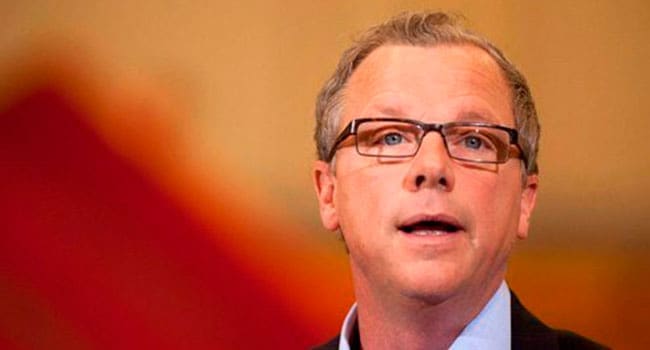 Saskatchewan Premier Brad Wall recently announced he will retire from politics. It will be a huge loss for his province, country and the Canadian conservative movement.
Saskatchewan Premier Brad Wall recently announced he will retire from politics. It will be a huge loss for his province, country and the Canadian conservative movement.
Some critics argue that Wall’s political legacy is more fiction than fact. They claim he simply had the good fortune to govern when centre-right politics was in vogue in Saskatchewan and the provincial economy was booming.
They’re wrong.
For nearly a decade, Wall ran a fiscally prudent government in a resource-rich province. Most of his budgets were quite responsible when it came to protecting taxpayer dollars and spending on Saskatchewan communities. He was also effective in balancing business interests and union demands (not an easy task in his neck of the woods).
He had a populist streak, too.
Wall supported a patients-first approach to public health care, and never endorsed full or partial privatization of this social service. He also defended Crown corporations instead of calling for their destruction. In particular, he convinced the federal government that the Anglo-Australian multinational firm BHP Billiton shouldn’t take over PotashCorp in 2010.
As well, he was one of those rare birds: a principled politician.
During last year’s meeting with provincial environment premiers about climate change, Wall expressed disappointment with Prime Minister Justin Trudeau’s decision to announce “a carbon tax unilaterally.” The Saskatchewan premier, like many Canadians, recognized that a carbon tax was a regressive policy. It would affect overall market outcomes through social costs rather than pure private costs – and, in turn, negate the overall impact of a provincial-federal climate change accord.
So he spoke out. It was the right decision and he was deservedly praised for it.
I’ve suggested for years that Wall was the second coming of former prime minister Stephen Harper. While he wasn’t nearly as ideological as the latter, he still tinkered with modern Canadian conservative principles – and made them more palatable in a province long dominated by CCF/NDP governments. His populist conservative instincts broke new ground in Saskatchewan, which has a lengthy history with left-leaning and right-leaning populist movements.
It was also why I (and others) thought Wall would have been the best choice for federal Conservative leader to replace Harper.
His lack of bilingualism aside (it could have been rectified after a few months of study), his provincial conservative leadership model would have naturally translated into a national conservative alternative. He would have given Trudeau a good run for his money in the 2019 federal election.
Alas, Wall didn’t want to dip his toes into federal political waters. He was content to remain in Saskatchewan and Canadian conservatives respected his decision. (In a subtle bit of irony, the federal Tories wisely chose a fellow Saskatchewanian, Andrew Scheer, as their new leader.)
The past few months haven’t been easy for Wall. Saskatchewan’s economy has gone through a very difficult patch and families have struggled. Plus, his recent austerity budget – including an increase in the provincial sales tax, eliminating tax credits for education and tuition, and closing the Saskatchewan Transportation Co. – led to a nine-point decrease in his personal popularity.
Would he have been able to overcome these obstacles? Based on his successful track record, I believe so. But politics often weighs heavily on your life and family, so he decided to retire with his head high.
It could be argued that Wall was the greatest Canadian premier to never become prime minister.
There are other ways to remember his political legacy, however. He was (and still is) a great Saskatchewan premier, a true small “c” conservative, an honourable politician and a real gentleman.
Canada will miss Brad Wall. Canadian conservatives will miss him even more.
Michael Taube, a Troy Media syndicated columnist and Washington Times contributor, was a speechwriter for former prime minister Stephen Harper. He holds a master’s degree in comparative politics from the London School of Economics.
The views, opinions and positions expressed by columnists and contributors are the author’s alone. They do not inherently or expressly reflect the views, opinions and/or positions of our publication.

